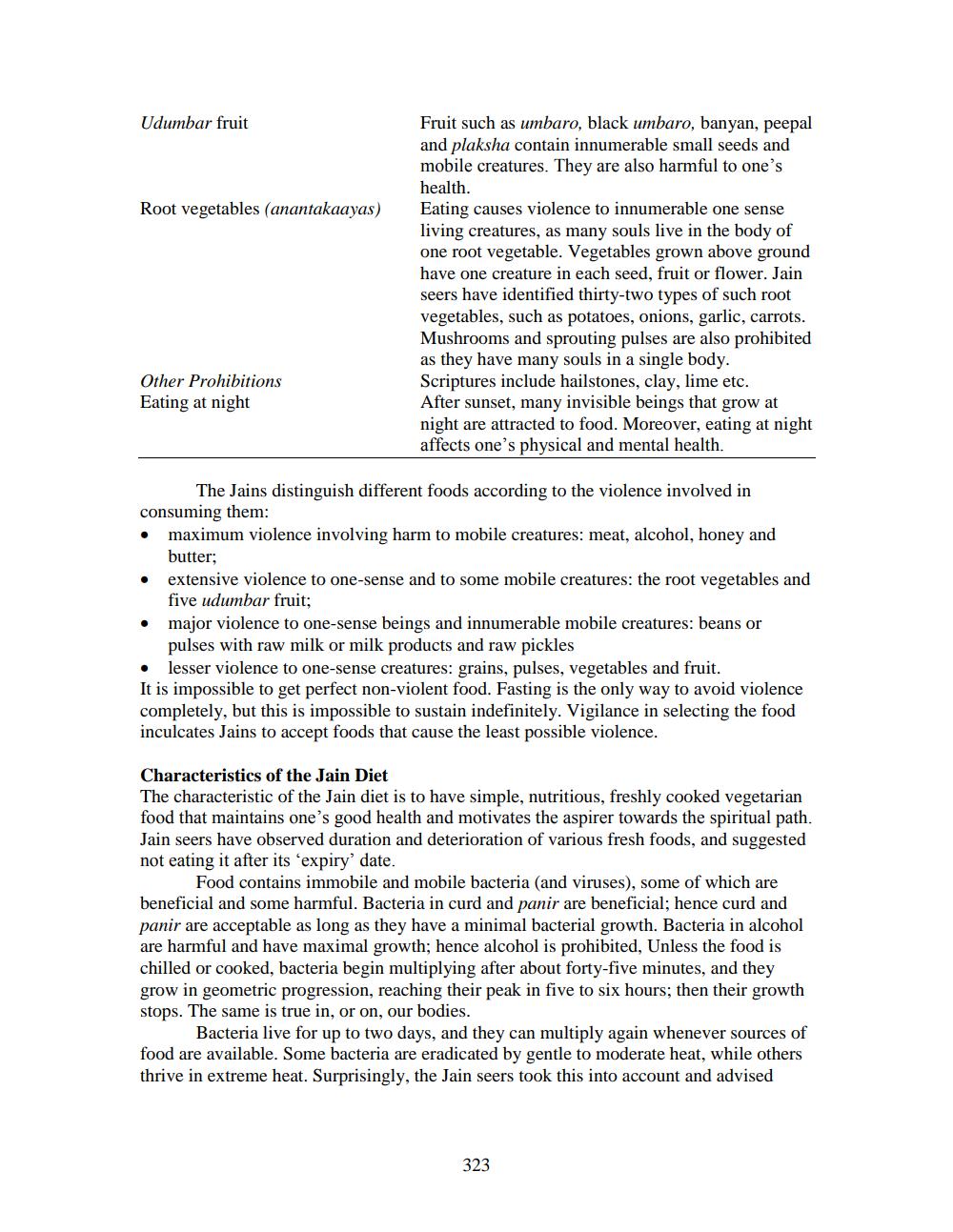________________
Udumbar fruit
Root vegetables (anantakaayas)
Fruit such as umbaro, black umbaro, banyan, peepal and plaksha contain innumerable small seeds and mobile creatures. They are also harmful to one's health. Eating causes violence to innumerable one sense living creatures, as many souls live in the body of one root vegetable. Vegetables grown above ground have one creature in each seed, fruit or flower. Jain seers have identified thirty-two types of such root vegetables, such as potatoes, onions, garlic, carrots. Mushrooms and sprouting pulses are also prohibited as they have many souls in a single body. Scriptures include hailstones, clay, lime etc. After sunset, many invisible beings that grow at night are attracted to food. Moreover, eating at night affects one's physical and mental health.
Other Prohibitions Eating at night
The Jains distinguish different foods according to the violence involved in consuming them: • maximum violence involving harm to mobile creatures: meat, alcohol, honey and
butter; extensive violence to one-sense and to some mobile creatures: the root vegetables and five udumbar fruit; major violence to one-sense beings and innumerable mobile creatures: beans or
pulses with raw milk or milk products and raw pickles • lesser violence to one-sense creatures: grains, pulses, vegetables and fruit. It is impossible to get perfect non-violent food. Fasting is the only way to avoid violence completely, but this is impossible to sustain indefinitely. Vigilance in selecting the food inculcates Jains to accept foods that cause the least possible violence.
Characteristics of the Jain Diet The characteristic of the Jain diet is to have simple, nutritious, freshly cooked vegetarian food that maintains one's good health and motivates the aspirer towards the spiritual path. Jain seers have observed duration and deterioration of various fresh foods, and suggested not eating it after its 'expiry' date.
Food contains immobile and mobile bacteria (and viruses), some of which are beneficial and some harmful. Bacteria in curd and panir are beneficial; hence curd and panir are acceptable as long as they have a minimal bacterial growth. Bacteria in alcohol are harmful and have maximal growth; hence alcohol is prohibited. Unless the food is chilled or cooked, bacteria begin multiplying after about forty-five minutes, and they grow in geometric progression, reaching their peak in five to six hours; then their growth stops. The same is true in, or on, our bodies.
Bacteria live for up to two days, and they can multiply again whenever sources of food are available. Some bacteria are eradicated by gentle to moderate heat, while others thrive in extreme heat. Surprisingly, the Jain seers took this into account and advised
323




